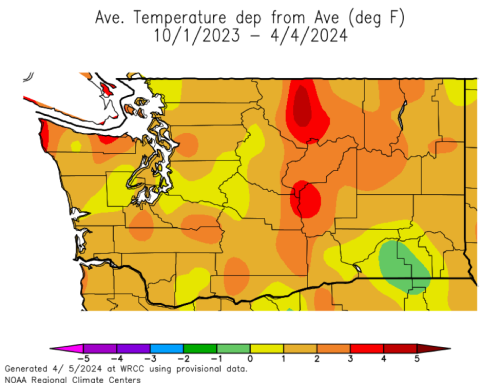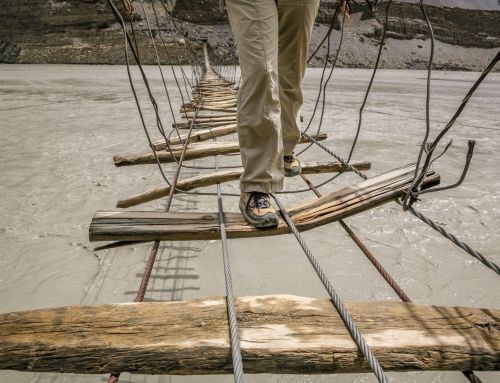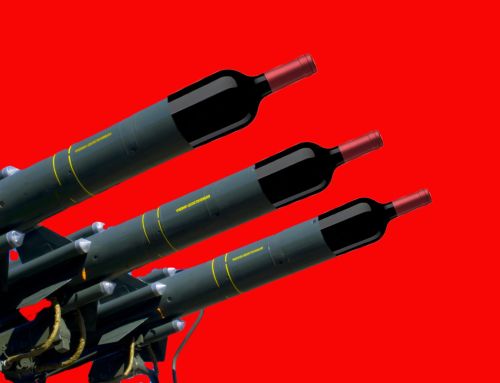There’s no question 2022 will be looked at as a year of dramatic changes in the Washington wine industry. Here, I review the stories that defined the year as well as current trends in the industry.
2022 saw big changes at Chateau Ste Michelle. 2023 could see even bigger ones.
Chateau Ste Michelle, Washington’s founding winery, has been going through a number of changes of late. This has included a $292M inventory write-off as well as $100 million in losses on non-cancellable grape purchases announced in 2020 by former owner Altria. In 2021, Sycamore, a New York-based private equity group, purchased the company for a cool $1.3B in cash. Then came the news this past June that the winery put its 118-acre Woodinville property up for sale in whole or in part.
In a way, this last piece of news shouldn’t have been as surprising as it was. Ste Michelle had already decided to move its white wine production to eastern Washington – a move that was long overdue. With that change, suddenly the size of the Woodinville property, much of it zoned for production or residential use, made little sense. Also, for a company looking to generate revenue to reinvest in the brand, what better way than to sell one of the most iconic properties in the entire Northwest?
Still, if the Ste Michelle property is ultimately sold, it would be a tectonic change in the Washington wine industry. Even if that happens, the company has committed to retaining a significant Woodinville presence.
“There’s universal appreciation from the executive leadership and the board of the importance of having a strong brand home in the Woodinville area long-term,” Ryan Pennington, vice president of communications at Ste Michelle Wine Estates, said last October.
There were other major changes at the winery in 2022. In October, president and CEO David Dearie resigned after two years at the helm. Dearie was the company’s second leader in four years since Ted Baseler retired after a 34-year tenure at the company, including 18 as president and CEO.
Meanwhile, just prior to Dearie resigning, Ste Michelle made a major investment, purchasing Willamette Valley’s A to Z Wineworks and Rex Hill. This allayed the concerns of some in the industry, for the moment, that the winery would be chopped into parts and sold for quick profit. Rather, Sycamore appears to be playing a longer game.
Overall, there is an old saying in the state that “As goes Ste Michelle, so goes Washington.” That statement is less true now that it was ten years ago. However, one still cannot overstate Ste Michelle’s importance to the overall success of the region. For this reason, all eyes will remain on the Chateau in 2023 to see what happens next.
Woodinville’s wine scene is about to be forever changed.
Ste Michelle putting its property up for sale wasn’t the only major news in Woodinville in 2022. Columbia Winery announced that it would not be renewing its lease on the property across the street from the Chateau after calling it home for 34 years. The winery originally planned to close up shop at the end of 2022, but word is that the timeline has been extended (very) slightly.
Could two of Woodinville’s founding and anchor wineries actually close their signature buildings in the same year? It could happen, though Ste Michelle has committed to hosting its concert series and other events for 2023, and any eventual sale and transition would likely take time.
These two major changes might give the appearance that Woodinville is in the doldrums. Far from it.
Mark Ryan, Fidélitas, Long Shadows, and Latta are currently building new tasting rooms on the old Red Hook Brewery campus that will open in 2023. Downtown Woodinville boasts two new tasting areas, with Woodin Creek Village now bustling with wineries and the new schoolhouse area home to L’Ecole, Valdemar, Barnard Griffin, and Crossbuck Brewing/Walla Walla Steak Company.
The biggest change of them all will be the new Harvest project currently underway after being stalled in various iterations for at least 15 years. This will include a luxury hotel and spa, residences, restaurants, tasting rooms, and other businesses.
“It will have a huge impact on the tourist industry in Woodinville,” John Tosti, co-owner of the project, told me in 2020.
It will take time for all of these changes to play out, settle down, and see what it all looks like. But one thing is clear. Woodinville’s wine scene will be forever changed.
Jackson Family comes to Washington.
Washington has seen increased external investment in recent years, from Duckhorn Vineyards launching Canvasback in 2012 to Crimson Wine Group purchasing Seven Hills Winery in 2016, Vintage Wine Estates purchasing Tamarack Cellars in 2018, and Rioja’s Valdemar Family opening a multi-million dollar facility in Walla Walla in 2019.
Jackson Family, however, could be the most significant player to come onto the Washington wine scene to date. In 2022 the winery purchased 61 acres in the Upper Mill Creek area of Walla Walla Valley. This is the company’s first foray into Washington.
One only needs to look at Jackson Family’s investments in Willamette Valley in the last decade to understand the company’s approach. They go all in. Jackson Family entered the valley in 2012 and today owns eight vineyards and farms approximately 1,800 acres.
“One great thing about Jackson Family is, we don’t do things half-assed,” winemaker Chris Carpenter told me when the company purchased the vineyard. “We want to really make an impact on the community and be part of the community.”
Jackson Family will surely do both. The company already purchased fruit in 2021 from Red Mountain, Horse Heaven Hills, Walla Walla Valley, and other areas. Now it has bought land. If past is prologue, expect Jackson Family to ramp up its operations in Washington in the coming years and, in the longer term, to have a profound effect on the state’s industry.
Upper Mill Creek is the current the center of activity in Walla Walla Valley.
Since Leonetti Cellar planted its Upper Mill Creek Vineyard in 1997, the area has seen a slow burn of activity. This has included Walla Walla Vintners, àMaurice, and Abeja establishing wineries and planting there, as well as, more recently, producers such as Aluvé. Now, however, it’s clear that this area is truly taking off.
I noted above Jackson Family purchasing land in this area. Doug Frost and investors at Echolands also purchased property in Upper Mill Creek in 2020, with plans to plant a vineyard and build a winery facility. This year Bledsoe Family also moved into the region, purchasing the àMaurice facility and vineyard. The plan is to use the property as both an estate vineyard and as a tasting room. Meanwhile FIGGINS is nearing completion on its long-planned winery in the area.
Nestled up against the Blue Mountains, Upper Mill Creek has always been the prettiest area in a valley blessed with majestic views. Now there will be an increasing number of producers making wine from this region as well as more wineries located there.
Many years ago, the pendulum swung from the airport, downtown, and westside wineries toward producers south of town, with their expansive spaces and sweeping views. The development of the Mill Creek area will provide the town more balance by giving this thriving region yet another fully-established, outrageously scenic tasting area.
Sparkling wines are bubbling up in Washington.
Washington has a history of making sparkling wine that dates back decades. Additionally, a small group of producers, such as Syncline, have long had high-quality sparkling wines as part of their larger portfolio. Treveri Cellars even established its winery dedicated to sparkling wines in 2007.
Now, however, an increasing number of wineries are jumping on the bubbly bandwagon. Things started out with wineries exploring pét-nat. Now many are also making traditional method wines as well.
Perhaps the surest indication in the increase in sparkling wines in Washington is the number of wineries dedicated to this style. This list includes Domaine Ste Michelle, Treveri, Tirriddis, Elentone, Pét Project, Yellowhawk, and Karma. A long list of other wineries make sparkling wines as part of their larger portfolio. There is even sparkling wine coming from Red Mountain! (More on this shortly.)
Dusted Valley is one of the most recent entrants, releasing its first traditional method sparkling wine, made from Walla Walla Valley fruit, last fall. “It’s probably the most work I’ve ever put into a bottle of wine,” owner and winegrower Chad Johnson says of the winery’s inaugural bottling. It’s also among the best sparkling wines the state has made to date.
The increase in sparklers from Washington is a thrill, but there are challenges ahead too. Sparkling wines are difficult and expensive to make at a high quality level. Moreover, growers and winemakers must find the spots best-suited to growing grapes for these wines. Then, of course, consumers must buy the wines.
However, that’s a story for another day. Sparkling wines are clearly moving from niche to mainstream in Washington. Let’s all raise a glass to that.
More Woodinville wineries are investing in Walla Walla.
In the late aughts, an avalanche of eastern Washington wineries opened satellite tasting rooms in Woodinville. Their reasons for doing so were simple. In hard economic times – and also in good ones – it makes fiscal sense to be close to an area with a metropolitan population of 4M people. As a result, Woodinville swelled to the 130+ wineries and tasting rooms.
Then in 2012, an interesting thing happened. Mark Ryan, one of Woodinville’s founding wineries, opened a satellite tasting room in Walla Walla. Then in 2020, it opened another.
Owner and founder Mark McNeilly has always been at the vanguard. Wine lovers – and more specifically, wine buyers – flock to Walla Walla every year. If you make and sell wine in Washington, doesn’t it make sense to be there waiting for them?
For a good decade, it wasn’t clear if others agreed. That changed in 2022. Patterson Cellars relocated its facility from Woodinville to Walla Walla. (The winery will continue to have a Woodinville tasting room.) Woodinville stalwart Guardian Cellars also opened a tasting room downtown.
“We’re kind of, for lack of a better term, reverse commuting,” founder and winemaker Jerry Reiner joked at the time.
Though Walla Walla’s tourism is exceptionally seasonal, that season is also very bright. Additionally, having another tasting room – or better still, property – increases equity for wineries taking a longer-term view. Look for additional western Washington wineries to follow suit and open tasting rooms in Walla Walla in the coming years.
Tasting rooms are springing up further afield in western Washington.
For decades, wineries in western Washington have set their sights on Woodinville. Over time, wineries expanded into Seattle’s SoDo neighborhood, Pioneer Square, Queen Anne, and West Seattle. A few years ago, a group of Woodinville wineries moved production to nearby Maltby.
Now we’re seeing wineries set up shop in Shoreline (Virtue), Edmonds (Dusted Valley), Tacoma (Browne Family, Dahlman), and Snohomish (Kasia, Randolph Cellars). Dusted Valley’s Edmonds tasting room also offers three beers and small plates.
“It’s been a good location for us,” Chad Johnson says.
What’s going on here? It’s two things.
First, Woodinville has long been a hotbed because it has a critical mass of wineries and the cost of entry was low. Today, some wineries fear that Woodinville is becoming over-saturated and, more importantly, space in the area is now far from cheap. As a result, wineries are looking for locations that are more greenfield to open tasting rooms.
Secondly, Washington wine lovers have shown a commitment to going where the wines are. With more and more wineries putting a focus on direct-to-consumer sales, many wineries are opening up multiple tasting rooms to cast a wider net. As the Seattle metropolitan area’s population sprawls ever further, this opens up more and more opportunities for wineries to plant their flag further afield. Expect this trend to continue.
Washington still adds wineries each year, but some wineries are closing their doors too.
There is no question that the Washington wine industry continues to expand. The state added more wineries in 2022, with the official number now 1,076. However, last year also saw some wineries closing up shop, including some standard bearers.
The headliner was Walla Walla’s Buty. Established in 2000, Buty was at the front end of numerous trends in Washington, from Cabernet Sauvignon-Syrah blends to Bordeaux whites to Rocks District wines. The winery and its wines will be greatly missed.
Tertulia Cellars, which had announced it was closing at the end of 2021, sold its winery facility and one of its vineyards to Patterson Cellars in 2022. Finally àMaurice Cellars, founded in 2000, made a name for itself (and Washington) over the years with Malbec and Viognier. The winery announced it was closing last September.
It might seem surprising that, as the industry continues to rise, the high tide doesn’t lift all boats. It shouldn’t. It is challenging to make money in the wine industry. These are passion projects for many people. Over years and decades, passions change and the baton is sometimes passed to the next generation.
Washington saw a dramatic surge in wineries in the last 20 years. Look for more wineries to continue to open in the state in the coming years. But expect a steady drumbeat of closures as well.
2022 was a year of profound loss for the Washington wine industry.
Any year is a mixture of highs and lows. That said, I cannot recall a year with as many devastating losses within the industry as 2022.
Allen Shoup, who passed away in November, was a pioneer and visionary in Washington. He left an indelible impact on the state’s wine industry.
Dan McCarthy, founder and previous co-owner of the influential Seattle area retail shop McCarthy & Schiering, passed away in December. Dan shaped generations of winemakers, tastemakers, and wine lovers in Washington. (Look for an article later this week about his impact.)
Ross Mickel, age 47 and founder of Woodinville’s Ross Andrew Winery, was among 10 people who died in a seaplane crash in September. Read an exceptional remembrance of Mickel here.
Finally, Renee Paula Eakin, 52, was the sparkling winemaker at Ste Michelle Wine Estates. She passed away in December. Both Mickel and Eakin should have had decades of winemaking in front of them. It is still hard to believe that they do not.
Images by Richard Duval. Image one of Chateau Ste Michelle. Image two of Columbia Winery. Image three of Upper Mill Creek. Image four of Domaine Ste Michelle wines. Image five of Kasia Kim from Kasia.
* * *
Read previous Washington Year in Review articles:
The Year in Wine: 2011 (Note: Opens .pdf)












Leave A Comment